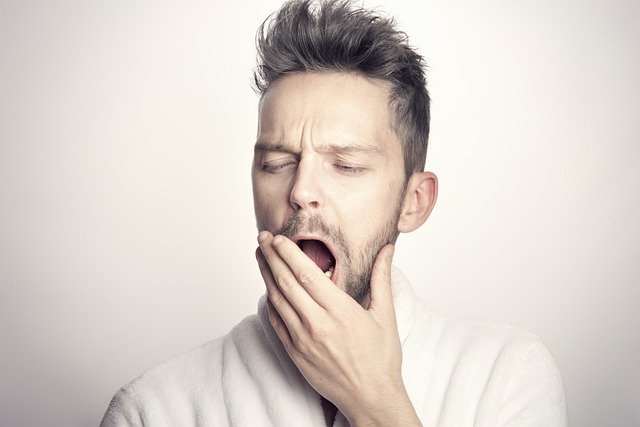We’ve all heard about the importance of getting enough sleep. Sleep lets both your body and mind recharge. It helps you remain healthy and fight off disease. A lack of quality sleep can disrupt your ability to concentrate, process memories, and think clearly. Most adults require between seven and nine hours . Without a proper amount of sleep, your brain can’t optimally function. The link between mental health and sleep is an important one.
How Inadequate Sleep Leads to Mental Distress
A lack of sleep doesn’t just make you feel groggy the next day. Routinely missing out on the right amount of nighttime rest can put you at an increased risk for obesity, Type 2 diabetes, high blood pressure, heart disease, and stroke, among other ailments.
During sleep, your brain is still awake. Activity increases and decreases during different sleep stages, slowing in non-rapid eye movement (NREM) sleep but also fostering quick bursts of energy. Action intensifies in REM sleep — that’s why this stage is typically associated with powerful, intense dreams.
The brain is continually processing, evaluating, and remembering thoughts and memories during sleep, especially during the critical REM stage. Without enough sleep, the brain suffers from not having enough time to consolidate positive emotional content. This can affect mood and emotional reactivity and is linked to mental health disorders, including a greater risk for suicidal ideation or suicidal behaviors.
For many years, experts believed that sleep problems were a symptom of mental health concerns, but recent research indicates that there is a bidirectional relationship between sleep and mental health. Put simply, difficulty sleeping may be both a cause and consequence of mental illness.
The Specific Mental Health Problems That Are Tied to a Lack of Sleep
More than one-third of the U.S. population doesn’t get enough sleep, but it’s considerably more common for those who experience symptoms of mental illness to be affected.
Chronic sleep problems affect 50%-80% of patients in a typical psychiatric practice, compared with only 10%-18% of the general population. For patients who have anxiety, depression, bipolar disorder, or attention-deficit/hyperactivity disorder (ADHD), there’s an even greater likelihood of sleep trouble.
Depression can cause sleep difficulty on both ends of the spectrum. Approximately 75% of those who suffer from depression show symptoms of insomnia, and many people also suffer from hypersomnia, which is sleeping too much.
If you have anxiety, common worries and fears may accelerate a racing mind in a state of hyperarousal, a major contributor to insomnia. For many, worrying about struggling to fall asleep may make for an additional challenge.
For a person who has bipolar disorder, sleep patterns change often depending on their emotional state. During a manic period, they may feel less of a need to sleep, but during a depressive period, they may require an excessive amount of sleep. Research indicates that many people who have bipolar disorder experience changes in sleep patterns before the onset of an episode.
Sleep problems are also common for those who have ADHD. These individuals can have trouble falling asleep and staying asleep, and they are prone to excessive daytime sleepiness. They are also more likely to have obstructive sleep apnea and restless leg syndrome.
A Path to Improving the Relationship Between Sleep & Mental Health
As we learn more and more about this bidirectional relationship between sleep and mental health, it might seem difficult to pinpoint where to begin searching for improvement.
The good news is that treatment for both sleep struggles and mental health concerns can potentially go hand in hand. In some cases, taking steps toward improved sleep can form part of a preventive mental health strategy.
Cognitive behavioral therapy (CBT) is one popular evidence-based intervention that helps people who have struggled with mental health concerns such as depression, bipolar disorder, and anxiety. There’s also a technique called CBT for insomnia (CBT-I) that has a track record of helping to reduce sleep problems.
A clinical trial found that CBT-I could reduce symptoms of many mental health conditions and decrease psychotic episodes. Research is ongoing to determine how viable this approach is for addressing both sleep and mental health concerns, but it at least offers a light on the horizon for those who are struggling.
About Sierra by the Sea
Sierra by the Sea, located in beautiful Newport Beach, California, offers personalized treatment in a safe and supportive environment for adults who have been struggling with substance use disorders and certain co-occurring mental health concerns. Featuring residential treatment, a partial hospitalization program, and detoxification services, Sierra by the Sea delivers all care through gender-specific programs that allow clients to address their unique needs through the power of a unified healing community. For more information, please visit www.sierrabythesea.com.


